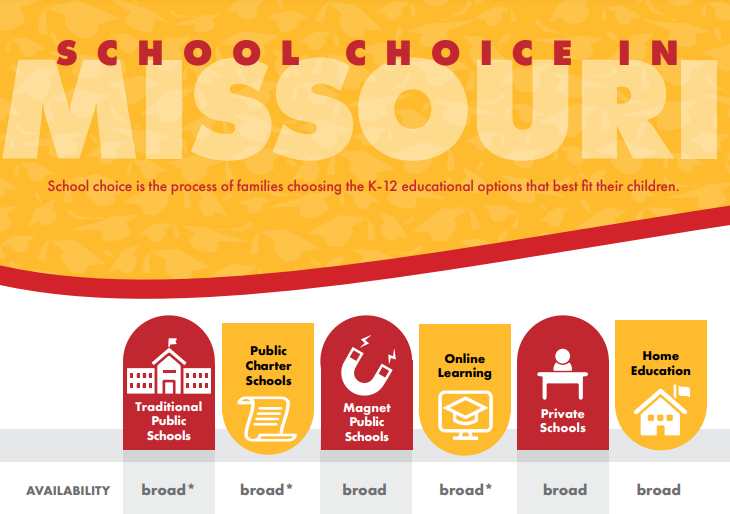 Education choice advocate Cory DeAngelis, a senior fellow at the American Federation for Children, recently visited Mike Ferguson at NewsTalkSTL, broadcasting from St. Louis, Missouri, to provide an update on the push for school choice in the state and around the nation.
Education choice advocate Cory DeAngelis, a senior fellow at the American Federation for Children, recently visited Mike Ferguson at NewsTalkSTL, broadcasting from St. Louis, Missouri, to provide an update on the push for school choice in the state and around the nation.
Key points:
“This is monumental,” DeAngelis remarked. “It looks like 2023 will outdo 2022 as the year of education freedom … We’re seeing the government school monopoly dominoes starting to fall. We’re witnessing a universal school choice revolution.
You can listen to the interview here.

St. John School in Ellisville, Missouri, one of 624 private schools in the state serving more than 113,000 students, is a fully accredited private Lutheran school aligned with state and national standards that consistently earns national awards for academic excellence.
Editor’s note: This article appeared last week on readlion.com.
Dec. 1 was pre-filing day for the Missouri legislature’s 2023 legislative session, and at least one elected official is locked in on improving the state’s new school choice program.
State Rep. Josh Hurlburt, R-Smithville, pre-filed eight total pieces of legislation for next year’s session, five of which are intended to bolster Missouri’s empowerment scholarship accounts (ESA) program known as MOScholars.
The first ESA bill Hurlbert pre-filed, House Bill 242, is a universal school choice measure that would expand MOScholars to allow for any student in Missouri to qualify for a scholarship. Such a bill is considered to be the holy grail of school choice legislation.
If HB 242 passes, MOScholars “would be open to every student in the state, regardless of their income level, regardless of whether they have an individualized education plan or not, or where they live,” Hurlbert told The Heartlander. “So, this is the ultimate bill that Missouri needs to be working towards in order to truly obtain educational freedom for our students.”
The ultimate goal for MOScholars, Hurlbert says, is for “the same dollars we spend to put a kid in public school to follow that same kid if they choose a different educational option.”
Hurlbert also works as a scholarship coordinator for the Herzog Tomorrow Foundation – one of the Educational Assistance Organizations (EAO) collecting donations and doling out scholarships – which gives him a unique lens into what issues are being dealt with in MOScholars’ first year of operation.
While HB 242 is considered the be-all and end-all ESA bill by school choice proponents, Hurlbert also filed other bills that, if HB 242 falls short, he believes will still solve some of the issues he sees with the program.
To continue reading, click here.

The Slee children of Missouri, ages 3 through 10
Editor’s note: This feature story appeared Tuesday on The Lion, a publication of the Herzog Foundation.
Shannon Slee may not have known she would end up being a homeschooling, homesteading mom of five children – but she did know that her family someday would look different from the cultural norm.
“When it came time to start formally educating my children, I wanted the best of all worlds: the ability to speak into their lives spiritually, emotionally and intellectually according to each of their unique gifts and challenges, as well as to be able to oversee the influences that they are exposed to every day.
“Ultimately, I decided that no one cares about the wellbeing of my children more than I do, and that makes me the most qualified to pour into their lives through their education.”
Shannon and her husband, Jordan, live on 39 acres in rural Ewing, Missouri, in a home they designed and built themselves. Jordan owns and operates his own construction company. Besides the house project, the couple has designed and built a workshop, chicken coop, children’s playhouse and an enclosed deer stand.
The Slees have five children ages 3-10. The family has embraced homeschooling even though both parents grew up in the traditional public school system. For Shannon, homeschooling started as an exploratory area of interest and has blossomed into a lifelong passion.
Homeschooling may not be easy, but she says the family has no regrets: “Here we are, still homeschooling six years later, and wouldn’t give it up for anything.”
To continue reading, click here.
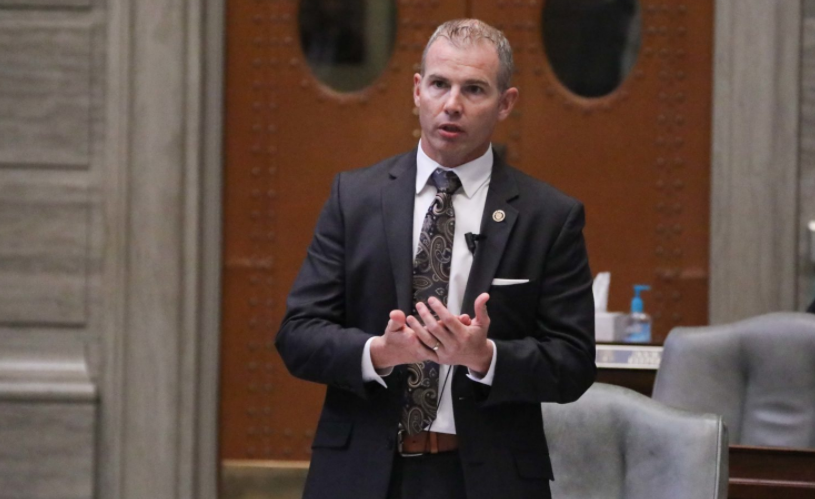
A bill sponsored by Missouri Sen. Rick Brattin would expand the Missouri Empowerment Scholarship, approved last year by the state legislature, dramatically expanding the current education savings account program and allowing it to be more widely used.
Editor’s note: This article published earlier this week on the Missouri Independent.
Coming off of last year’s success passing a tax credit to fund scholarships to pay for private school tuition, school choice advocates hope lawmakers will expand the program before it’s even gotten off the ground.
But even with support from key legislative leaders, the idea faces long odds.
Senate Bill 841, sponsored by Sen. Rick Brattin, R-Harrisonville, would remove many of the limits imposed on the iteration of the program passed last year. That includes striking geographic boundaries that kept the program out of rural areas and lifting a $25 million funding cap lawmakers put in place.
“It’s basically the voucher system is what it would be,” Brattin said, “administered by the (state) Treasurer, and the monies that would be associated with your kid going to your local school would then go to you as the parent, or to that account, and you could deem to where those kids go.”
Any push to expand the program’s reach would have two key allies who said they support the idea: House Elementary and Secondary Education Committee Chairman Chuck Basye and Senate Education Committee Chairwoman Cindy O’Laughlin.
But that might not be enough.
To continue reading, click here.
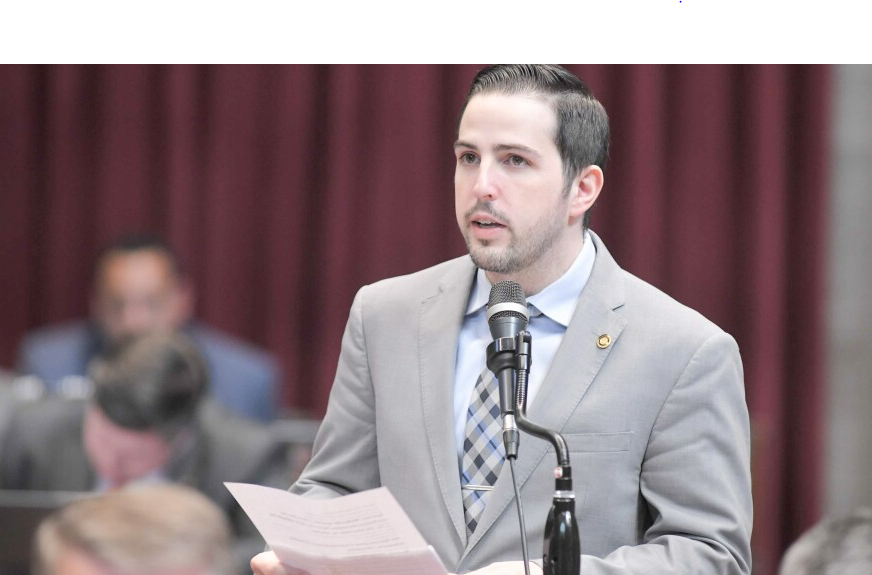
Missouri State Rep. Phil Christofanelli speaking on the last day of the Missouri General Assembly session in May.
Editor’s note: This article, which includes details on Florida’s education choice scholarships, appeared last week in the Missouri Times.
One of the most talked-about bills to pass during the previous session was legislation creating $50 million in tax credit-funded accounts for public and private school expenses.
Rep. Phil Christofanelli’s Empowerment Scholarship Account program, signed into law earlier this year, was specifically billed as aiding students with disabilities or in low-income families. It applied to counties with charter governments or in a city exceeding 30,000 people and is triggered by K-12 transportation funding.
This year, Sen. Rick Brattin wants to further opportunities for students to access an education savings account (ESA).
A member of the Conservative Caucus, Brattin has already pre-filed legislation to make eligible any public school student or first-time enrollee for an ESA if they live in a household with an income that is not greater than two times the threshold used to qualify for free or reduced-price lunch.
Like last year’s bill, the ESA funds would be managed by the state treasurer. However, unlike Christofanelli’s legislation, the money for this program would be appropriated by the General Assembly as opposed to a tax credit. There are also no demographic requirements included in Brattin’s bill.
Brattin likened his SB 841 to a “voucher system” and said the previous ESA bill was a “great first step.”
To continue reading, click here.
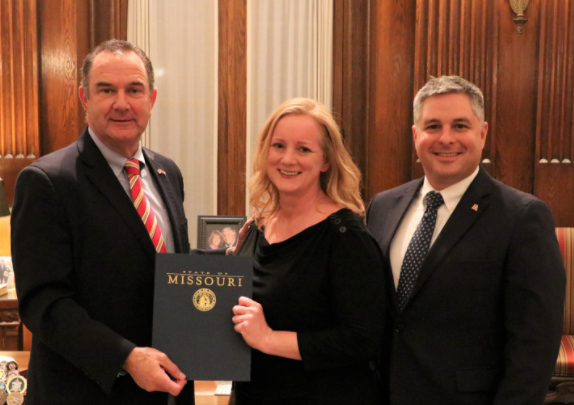
Kim Baughman, center, has been appointed by State Treasurer Scott Fitzpatrick to oversee Missouri’s education choice programs.
The Show Me state has taken a significant step toward affirming its commitment to education choice by naming its first school choice program manager.
State Treasurer Scott Fitzpatrick on Monday named former Missouri Department of Economic Development Community Finance Manager Kim Baughman as leader of the newly created position of Treasurer’s Director of Program Administration.
In this role, Baughman, who has extensive experience supervising community savings and investment programs, will assume control of the newly created Missouri Empowerment Scholarship Accounts Program. She also will oversee the Show-Me Checkbook, Missouri’s MOST 529 education plan, and MO ABLE, the state’s savings and investment program for disabled people.
The Missouri General Assembly created the Missouri Empowerment Scholarship Accounts Program during the 2021 legislative session to expand school choice in the state with a first-year $25 million tax credit allowance.
State Rep. Phil Christofanelli sponsored a bill creating Education Assistance Organizations, which will create a program enabling education assistance organizations to collect donations that will be offered to students as scholarships. Donors can receive a 100% tax credit, not to exceed 50% of their tax liability for a given year.
The program will provide education savings accounts to applicants by the next school year.
"I am passionate about service and providing opportunities and resources to youth and families who are under-resourced and underserved," Baughman said. "This position is a wonderful way to put this passion into action. I look forward to implementing this new program and working to make sure existing programs continue to serve Missourians."
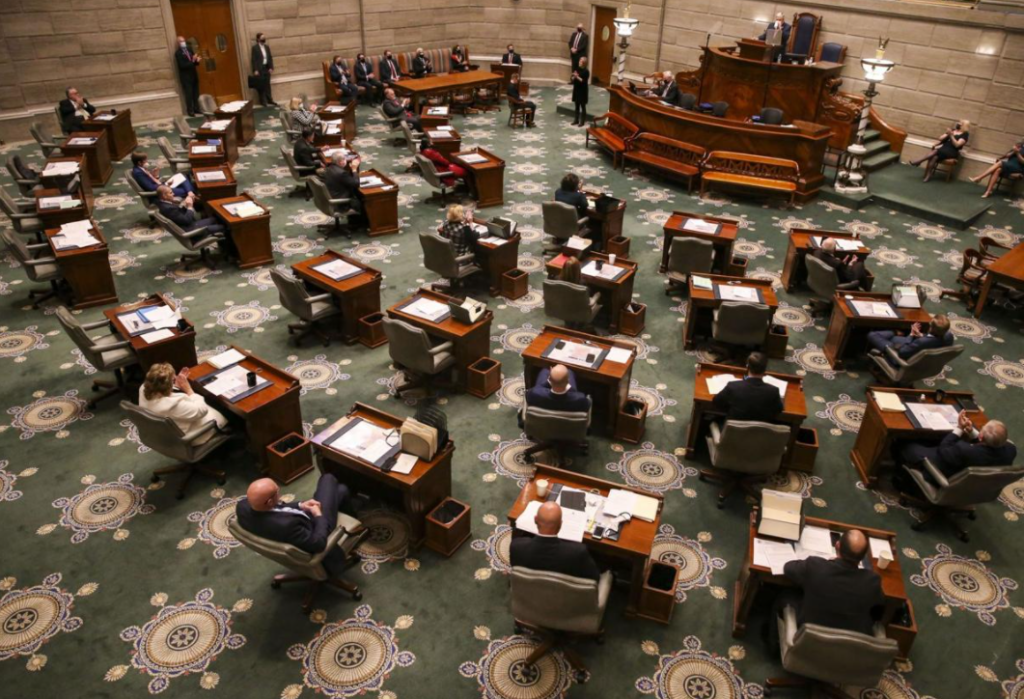 Missouri has become the latest in an increasing number of states that are embracing education choice with the creation of its first private school choice program.
Missouri has become the latest in an increasing number of states that are embracing education choice with the creation of its first private school choice program.
Gov. Mike Parson signed into law earlier today HB349, which will grant Missouri families access to resources and tools to assist with various educational needs for their children.
The legislation creates a $25 million education savings account program that provides eligible students $6,350 for educational expenses to attend the public, charter, virtual, private or homeschools of their choice. Any student who attended a public school in the previous year or is entering school for the first time is eligible.
Students with special needs who have an Individual Education Plan or a family income below federal free and reduced-price lunch guidelines will be given first preference. Those from families making less than 200% of that amount will be given second preference.
Tommy Schultz, chief executive officer of the American Federation for Children, praised lawmakers, saying the program will empower parents to make the best decisions for their children.
“School choice is on the rise nationwide, and this represents vital progress for educational opportunity in Missouri,” Schultz said. “We are all thankful for Gov. Mike Parson and the courageous Missouri legislative leadership – especially Speaker Rob Vescovo, Senate Leader Caleb Rowden, Sen. Andrew Koenig, and Rep. Phil Christofanelli and their commitment to putting students first."

Whitefield Academy in St. Louis, Missouri, is one of more than 690 private schools in the state.
The Missouri Legislature sent to Gov. Mike Parson on Thursday a bill that would create empowerment scholarship accounts, dramatically expanding the state’s school choice program by allowing more than 7,000 public school students to attend private schools.
Under HB 349, up to $50 million in tax credits could be claimed annually for the program. The cap eventually will be lifted to $75 million a year.
The accounts can be used to help pay tuition, textbooks, tutoring services and other school-related costs.
“This provides another option for kids who may need that option,” said Sen. Andrew Koenig, R-Manchester. “The reality is every child is different, and we don’t know what that child needs but parents do. It could be a child is in a great school but they’re getting bullied, and they need a different environment. Who knows what the needs of that child are?”
School choice advocates, including Children’s Education Alliance of Missouri director Peter Franzen, argued the ESA program would benefit low-and-middle-income families who will now have an option if they are unhappy with their children's public schools.
“This is a historic day for Missouri children,” Franzen said. “COVID has really shined a light on this. I think there’s a lot of pent-up demand and interest.”
An earlier version of the bill allowed scholarship accounts statewide, but after meeting resistance, the proposal was scaled back to apply only to students in counties and cities with more than 30,000 people.
Missouri Senate majority leader Caleb Rowden signaled that more education choice legislation is to come.
“Today my Republican colleagues came together to deliver a decisive victory for Missouri children,” Rowden said. “HB 349 provides targeted empowerment scholarships for the neediest children and ties program enrollment to public school funding increases. This is a win for Missouri kids and Missouri education – and we’re just getting started.”
Parents in the low-income, predominantly black Normandy School District in St. Louis, Mo., have been made to feel unwelcome for years, as public school officials repeatedly fought to deny them the right to choose new public schools. Their saga may finally be coming to a close, as a three-judge panel this week unanimously rebuffed school officials' latest efforts to thwart Missouri's public-school transfer law.
The transfer law allows parents of students enrolled in "unaccredited" public school districts to request transfers to public schools in higher-performing districts. (Districts lose accreditation if the school fails to meet certain performance goals.) The law was passed in 1993, but went largely unnoticed until two parents sued to transfers out of the then-unaccredited Clayton and St. Louis Public School districts.
Public school officials fought the law through trial and appeals courts until 2013, when the Missouri Supreme Court unanimously upheld the constitutionality of public school transfers. With that ruling, nearly a thousand children in the persistently struggling Normandy School District rushed for the door, causing a near-collapse of the small inner-city district, prompting a takeover by the state Department of Education.
Unfortunately for the parents, a victory at the Supreme Court did not secure their right to choose a new school, as public school officials scrambled to undo the law.
Renaming the district the "Normandy Schools Collaborative," state officials at the Missouri Department of Elementary and Secondary Education (DESE) claimed the "new" district was suddenly no longer unaccredited. That interpretation meant thousands of future transfers could be denied. State officials created other rules to force students back into Normandy. Addressing one legitimate flaw in the transfer law, officials stated public-school transfer students could only receive $7,200 in public funding. Districts were not required to accept the students with this lower payment, and wealthier districts had long been charging more than $7,200 to accept transfers. (more…)
 New Hampshire: The state legislature overrides Gov. John Lynch's veto of a tax credit scholarship bill. (Manchester Union-Leader)
New Hampshire: The state legislature overrides Gov. John Lynch's veto of a tax credit scholarship bill. (Manchester Union-Leader)
North Carolina: School choice leaders throw in the towel on a legislative proposal for tax credit scholarships. (Associated Press) A judge rules that a virtual charter school cannot open, siding with the state board of education, which had refused to consider the proposed school's application. (Raleigh News & Observer)
New Jersey: Gov. Chris Christie says it's unlikely that a school voucher bill will move in the state legislature this year. (NJ Spotlight)
Florida: Faced with declining enrollment and increased competition from school choice, the Broward County School Board wants to open its own charter schools. (South Florida Sun Sentinel) Meanwhile, the state Charter School Appeal Commission sides with four of five charter school applications rejected by the Palm Beach County School Board. (Palm Beach Post)
Pennsylvania: A well-funded political action committee and the Philadelphia Archdiocese are pushing hard to expand the state's tax credit scholarship program. (Philadelphia Inquirer)
Texas: The state's main charter school group filed suit against the state, charging it with short-changing charters on facilities funding and arbitrarily capping the number of charters that can open. (Houston Chronicle) (more…)